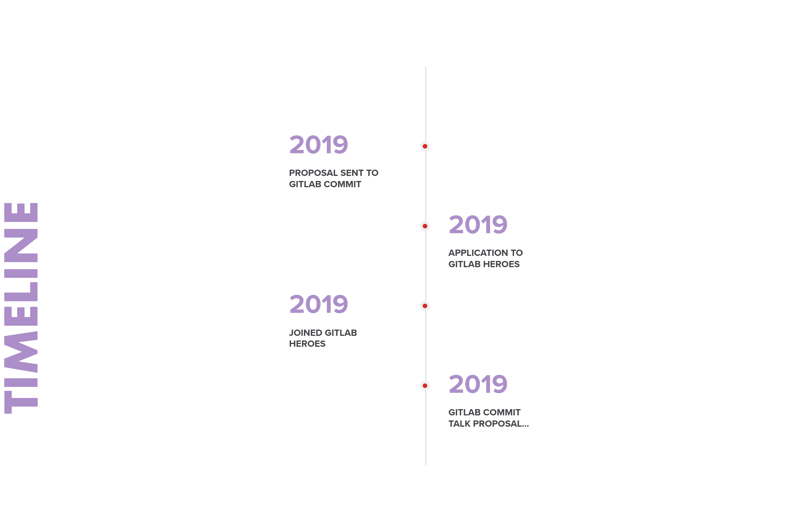My Unexpected Journey to Become a GitLab Hero

Mario García
Posted on October 4, 2020

I recently joined GitLab Commit to talk about "My Unexpected Journey to Become a GitLab Hero". This was a 24-hour virtual event that was held on August 26. I joined the GitLab Heroes program last year and my talk was about how it's been to be part of the program during a whole year.
Being a GitLab user
If I have to say when I started using GitLab, it was two years ago but I created my account in 2016. I was attending a Civic Innovation Lab (LABIC) in Rosario, Argentina in October 2018, this was a hackathon-like event.
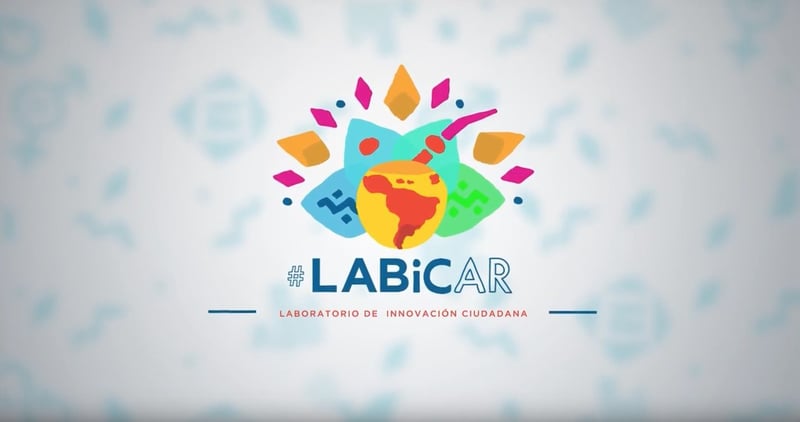
I was at this event to join a multidisciplinary team for working on one of the nine projects that were built during two weeks and that were looking for a solution of social problems through technology.
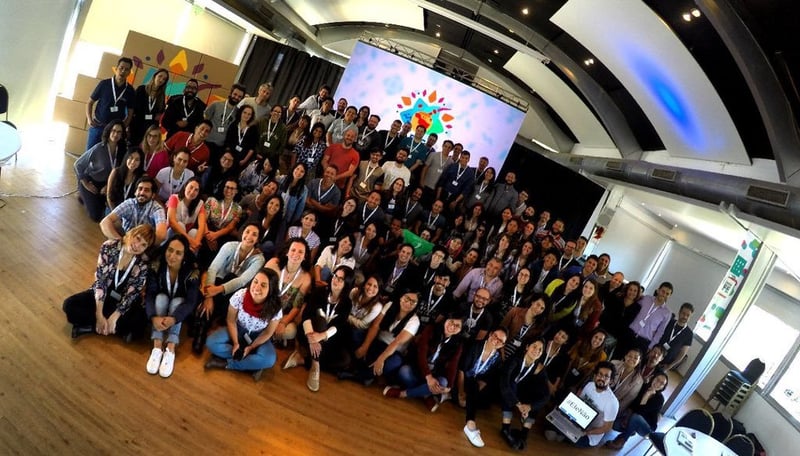
I joined the Mercado Justo team for working on a platform that supported and promoted fair trade within local producers. In the team there were four developers.
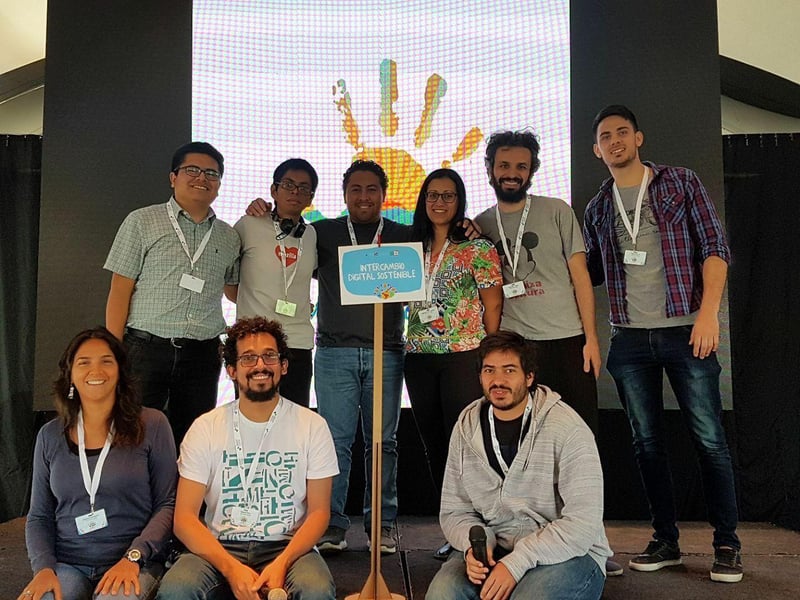
We decided to use GitLab for the development process. The platform was created based on a fork of OpenCart which is an e-commerce developed with PHP. You can go to the repository if you want to take a look into the code.
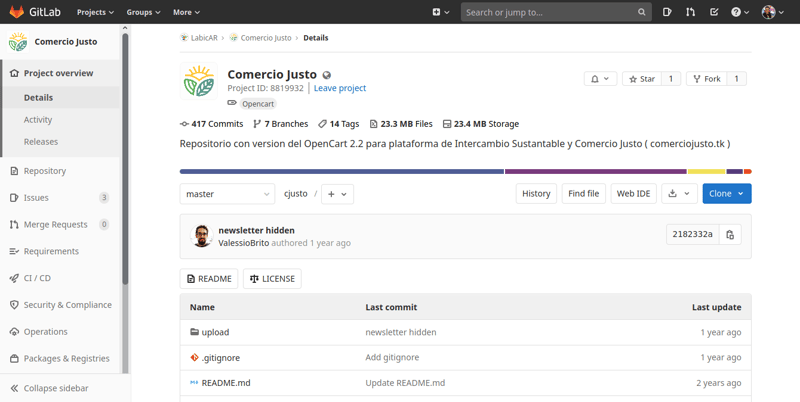
Continuous Integration
Before that I didn't have any experience with GitLab or continuous integration. I started looking for a CI/CD tool that would have support for Rust and Python. Those were the languages I was using for some projects that I was working on. I also required that it would work well with Heroku. Later I realized that I would have to learn Docker.
I chose Travis CI for GitHub. This was before GitHub Actions was released or even before getting access to the beta. I also tried GitLab CI.
After searching in Google, reading official documentation as well as articles and tutorials, running some tests and taking notes, I published a few blog posts (in Spanish) about it as I always do when I'm learning a new technology.
These blog posts were in Spanish and I published them in April last year. I wrote about how to use Travis CI with Rust projects. I also wrote about GitLab CI and how to deploy a web app developed with Rust to Heroku.
Deploy a Rocket app from GitHub to Heroku
Deploy a Rocket app from GitLab to Heroku
GitLab Heroes
Last year in July I sent a proposal to GitLab Commit and I also applied to join GitLab Heroes without most expectations. One month later surprisingly I was accepted to speak at GitLab Commit London and I joined the GitLab Heroes program.
At the beginning of 2019 I started writing and sending talk proposals to some events. I don't remember how many I wrote. I was looking for an opportunity to present my first talk in English. The answer was no.
One day, I was on Twitter when I saw a tweet about GitLab Commit and I thought this was the last opportunity I could have. I worked on a proposal and sent it on the last day that CFP was open. This was on July.
Later that month I found out about the GitLab Heroes program. I visited the website and something that caught my attention was the idea that Everyone can contribute and I felt identified with it due to my previous experience with Open Source and projects I've been involved with.
According to the website you can be recognized as a GitLab Hero if you're an active community member. Organize and attend events like conferences and meetups, write technical blog posts or contribute to GitLab Open Source project are some activities for which you can join the program.
I was already writing about GitLab and I thought this was an opportunity for learning about DevOps, GitLab and tools provided through gitlab.com, meeting other GitLabbers and learn from them and sharing with the community in Latin America.
A year as GitLab Hero
It's been a whole year. I joined the GitLab Heroes program last August and the first event I attended as GitLab Hero was GitLab Commit.
I remembered that I spent a few hours working on the proposal I sent to GitLab Commit and when I was filling the form I chose London as the only option as I don't have a visa for traveling to the United States.
I didn't have most expectations but one day when I was coming home I received an email with the subject 'GitLab Commit London: Talk Proposal Accepted!'. I couldn't believe that it really was happening and I had the opportunity to present my first talk in English.
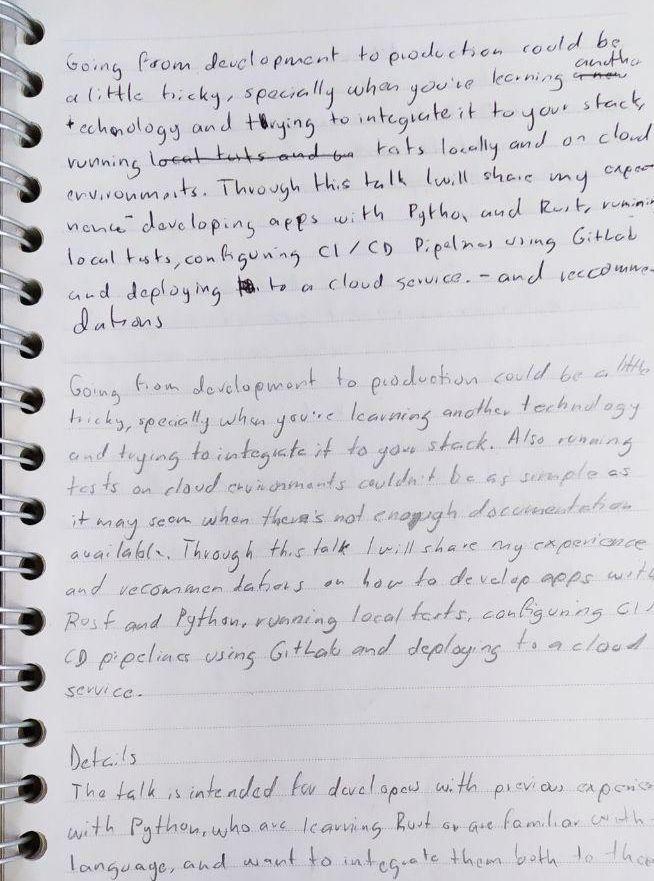
Well, it was time to get ready for GitLab Commit and I had to start working on my presentation, practice, prepare everything for traveling. I renewed my passport in and scheduled my flights in September.
It was amazing to see my profile picture on the website next to the other speakers. I started sharing my profile card on social media.
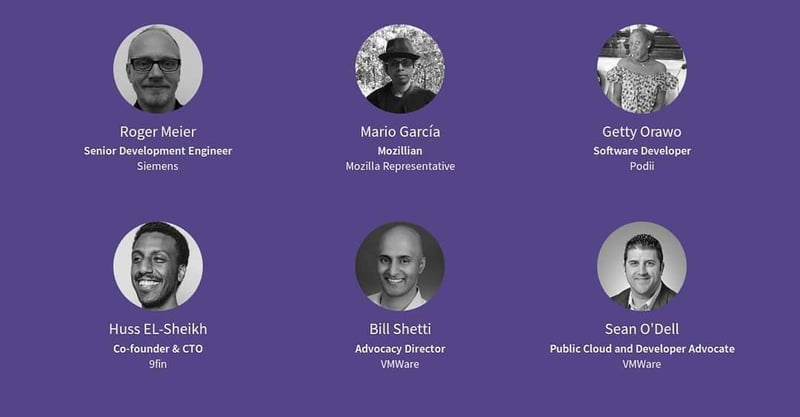
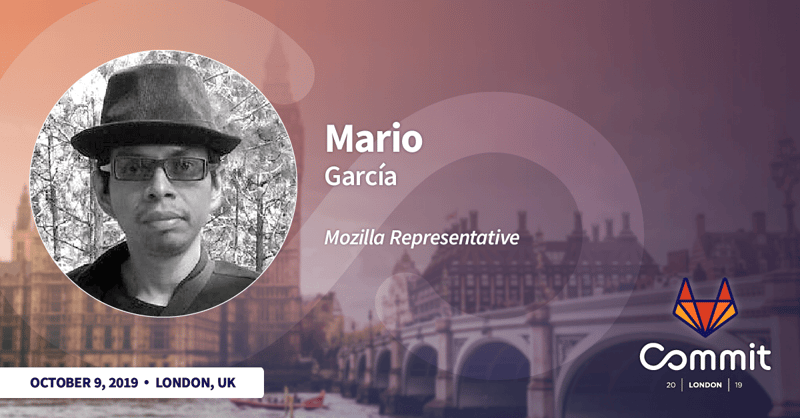
A few weeks later, I was ready for the event and the adventure started. I traveled from Tapachula, a city in the southwest of Mexico, near the border with Guatemala.
It was a 20-hour trip and I went through the airports of Mexico City, Bogotá and finally London.
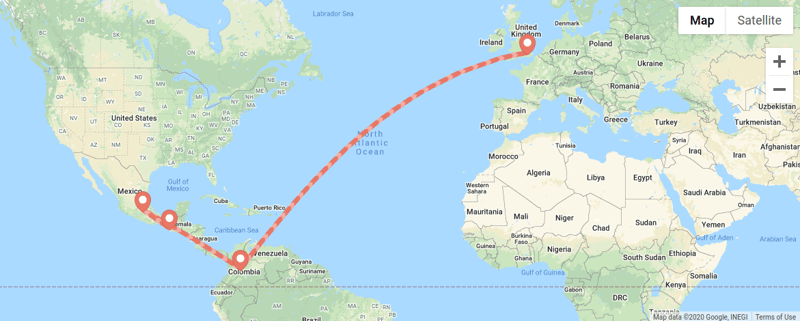
I arrived in London two days before the event, on October 7. I had some time to walk around the city, take some photos, visit the London Eye. I also got lost when I was going back to the hotel since my phone discharged. In general, I enjoyed my time in London, a city that I always wanted to visit when I started traveling to speak at conferences.

I had a great time at GitLab Commit, learned a lot from the other speakers and made new friends. I was so thrilled of being able to achieve that goal I set at the beginning of the year, to present my first talk in English. I received many positive comments about my talk.
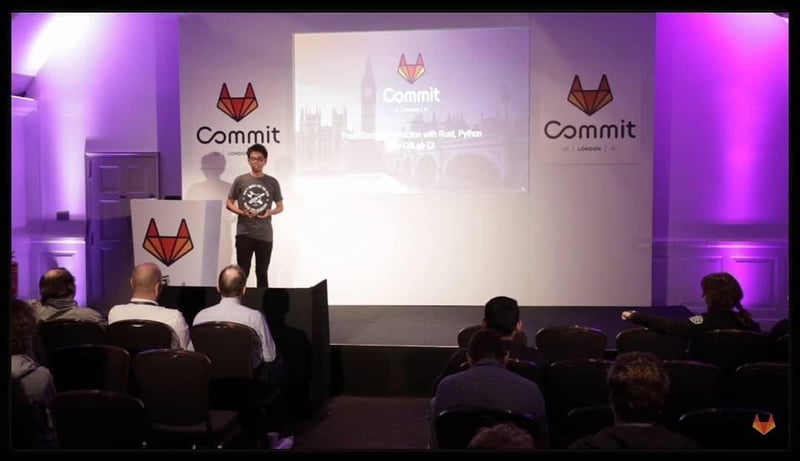
Slides: docs.google.com/presentation/d/1w1r-tUra7s7ApDgg7iGXOg2vgEIpByldIAkWziw5pyg/edit?usp=sharing
Video: youtu.be/BYfJBa_79Xo
Being a tech speaker is something that I've being doing since 2008 but impostor syndrome was there to tell me I wasn't ready to speak at any event in a language that I started learning seventeen years ago but the truth is I was more than ready to do it and I did it.
I've been a Mozilla contributor since 2011 and when I was in London I visited Mozilla London, the second Mozilla space I've gone to. In 2013, I visited Mozilla Toronto when I was attending Mozilla Summit.
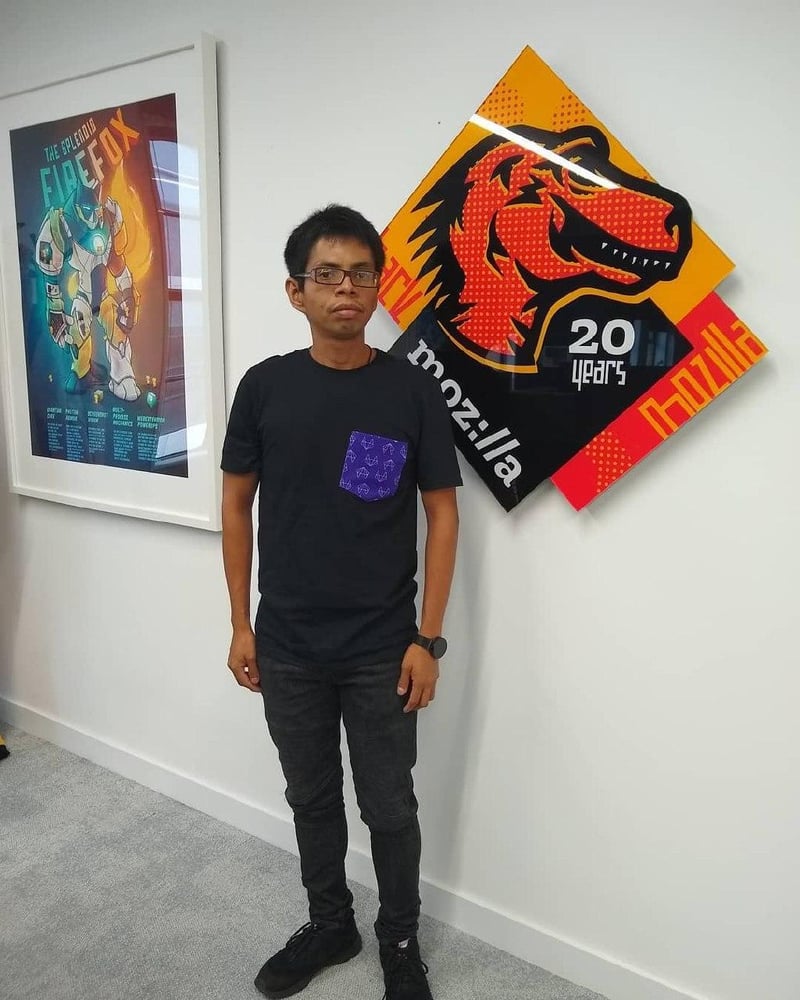
Besides speaking at GitLab Commit, as a GitLab Hero I've learned a lot about some technologies like Git, GitLab, Docker and Heroku.
New commands like the one I can use to create a new repository directly from the Linux terminal instead of going to gitlab.com. Different case scenarios for using GitLab CI with Rust and Python and for publishing static websites like my website at mariog.xyz that is hosted on GitLab with GitLab Pages.
I started to get familiar with Docker and basic commands, how to create a custom Docker image and containerize an app. I already was using Heroku but I learned how to use it for apps developed with both Python and Rust.
You're probably thinking that I've been doing these activities on my own but I've had a lot of support from GitLab and some GitLab team members like Emily Chin who supported me this and last year for preparing my presentation by reviewing the content of the slides, giving feedback and suggestions on how to improve the content. I also had support from John Coghlan who manages the GitLab Heroes program and Ray Paik with whom John managed the 'Everyone Can Contribute' track for GitLab Commit.
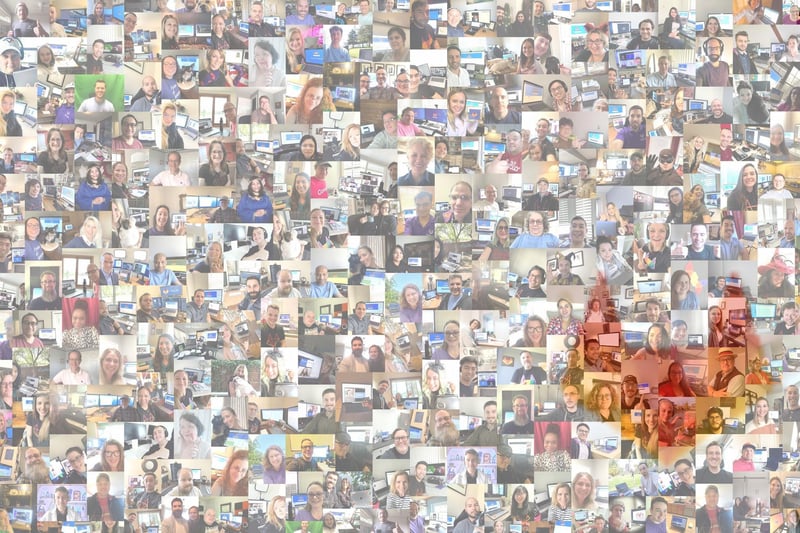
You don't have to be an expert but willing to learn. If you want to join the program, you will have the support from GitLab team members and other GitLabbers that can help with code and anything related with talks, specially if you want to organize a meetup or speak at conferences or host a workshop.
Supporting communities in LATAM
I've been collaborating with some communities in Latin America and if you attended my talk last year, you probably remember that one of my slides showed the statement 'If you are a content creator or speaker, don't forget about your native language, especially if you live in a non-English speaking country'.
I truly believe in the above statement. I started learning English when I was in high school. I'm from Mexico so my native language is Spanish. Most of the content available related to software development and technology related topics are in English. Not so many people have the opportunity to learn this language.
There are efforts for localizing tools and documentation like the work the community in Mexico is doing for localizing Firefox from English to Spanish or the work the Python community is doing for localizing the documentation of the language from English to Spanish.
We, as content creators or speakers, should focus on creating more content in our native language. That's the way that we can support other people that don't have the same opportunity to learn English and get access to all of this content.
Some communities I've been collaborating with are:
Some universities I've collaborated with are:
I've been writing technical blog posts for so many years, as a way to improve my grammar and vocabulary, in both English and Spanish. My blog posts are published on DEV and PuntoTech. GitLab, Open Source and software development are the topics I've covered.
Localization is one of the areas I've been involved with in Open Source. I've been using GitLab for hosting some projects, one of them is the localization of the official documentation of Rust from English to Spanish, a work in progress that you can check in the corresponding GitLab repository.
What's next?
Talking about what I really would like to do in the future or what projects I would like to work on, here's a list:
- Become a DevOps expert
- Write a book about GitLab, in Spanish
- Create more content in English and Spanish
- Become a mentor for new GitLab Heroes in Latin America
If after reading this blog post, you want to join the GitLab Heroes program, I would be more than happy to support and help you.
Slides: docs.google.com/presentation/d/1SkCnBCD0jprUhGGYTUIvryP4cfizPTrqUsoLUyU8xxY/edit?usp=sharing
Video: youtube.com/watch?v=xv90UhXV3Ws

Posted on October 4, 2020
Join Our Newsletter. No Spam, Only the good stuff.
Sign up to receive the latest update from our blog.
